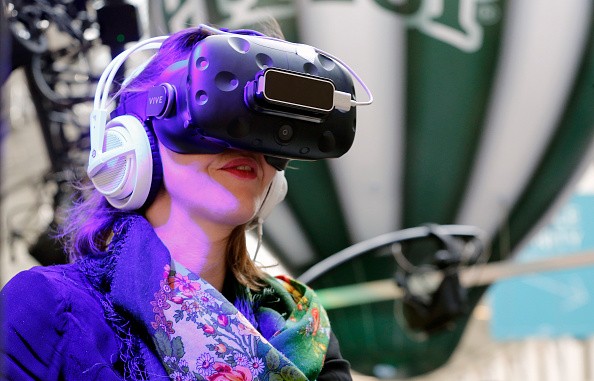HTC Vive, a virtual reality headset developer backed by HTC and Valve Corporation, teamed up with China's National Tourism Administration to launch a virtual reality-enabled digital travel platform.
The virtual reality cloud data service platform will use Vivepaper to allow users to experience travel destinations in the form of VR.
Vivepaper is developed by Vive, and will let users interact with a paper booklet imprinted with QR codes simply by making hand gestures, giving them an enriched virtual experience with added realism.
The gestures that users can do on Vivepaper includes mimicking the turning of pages or pointing at virtual objects using one's fingers, which allows readers an immersive experience in travel-related content.
The companies announced that services such as big data analysis, information sharing, online entertainment and instant messaging will be part of the platform's features to create more value-added opportunities for the tourism industry.
By integrating VR travel content from the Vivepaper platform and the big data from China's National Tourism Administration, this platform will provide cloud service solutions and VR applications to travel agencies' offline stores.
Hongye Xin, the deputy director of the Information Center at China National Tourism Administration, said: "As the world's largest travel market, China will now become the world's first market to systematically apply VR technology to its tourism industry."
"We see the travel industry as one of the first to be disrupted by VR and with the full support of the China National Tourism Administration we are very optimistic about its growth potential," said Alvin Graylin, HTC Vive's China Regional president.
The platform currently has 11 Vivepaper magazines, each with an embedded destination content and access to over 5,000 360-degree videos of scenic areas. It will be composed of a dual-screen desktop device, one screen for salesperson operation, and another for customer display.
Via a system developed by Renwoyou, the system will be deployed all over China. Heralding the arrival of VR tourism in the country, travel agencies are expected to incorporate the service platform into the majority of their more than 200,000 offline stores



























